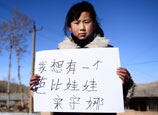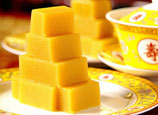
Coca-Cola said the rumor stems from an issue with Brazilian orange products a year ago, but that the truth had been distorted.
At that time, the company discovered that Carbendazim, which is not approved for use on citrus in the United States, is used to combat mold on orange trees in Brazil, which is a major source of orange juice for the world.
The Coca-Cola headquarters immediately alerted the U.S. Food and Drug Administration (FDA) as it believed it was an industrial issue that affects every company that produces products in the United States using orange juice from Brazil.
The FDA and the Environmental Protection Agency said after risk assessment that orange juice from Brazil is safe to drink.
Meanwhile, Coca-Cola China sent samples of orange juice imported from Brazil to China's National Food Quality Supervision and Inspection Center.
A report released on Jan. 19, 2012 by the center said the amount of Carbendazim in the samples submitted by Coca-Cola "can not be measurable."
American soft drink giant Coca-Cola has been in China for more than three decades. The company is estimated to have invested an accumulated 9 billion dollars in China by 2014.















 Busiest line in Beijing: Subway line 10 has reached a daily transportation of 1 million passengers on average
Busiest line in Beijing: Subway line 10 has reached a daily transportation of 1 million passengers on average


![]()
